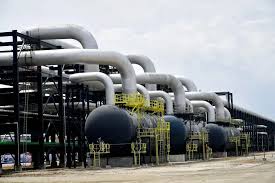With over 206 trillion cubic feet of natural gas, Nigeria holds one of the largest gas reserves in the world, yet decades of underutilisation have kept this abundant resource from transforming the economy. Now, thanks to the Petroleum Industry Act (PIA) of 2021, a new opportunity has emerged — the Midstream and Downstream Gas Infrastructure Fund (MDGIF) — designed to shift Nigeria from a crude oil-reliant nation to a gas-powered industrial force.
The MDGIF is not just a financial pool; it is a strategic tool meant to mobilise private capital, expand critical gas infrastructure, and unlock value across the gas supply chain — from processing and storage to distribution and usage. If driven with vision and discipline, this fund could be the most powerful engine behind Nigeria’s energy transition, industrialisation, and job creation goals.
Despite the establishment of the MDGIF, implementation has lagged behind expectations. However, according to a recent report, the fund’s full potential can still be unlocked — not through new legislation, but by making the system work better. The report outlines five practical reforms to reposition the fund as a real driver of growth.
First is governance reform. There is a clear call to create a dedicated Investment Operations Unit (IOU) within the Nigerian Midstream and Downstream Petroleum Regulatory Authority (NMDPRA). This unit would streamline decision-making using data and economic impact analysis, making funding more agile and focused on projects with high social and commercial returns — like cutting gas flaring and powering rural communities.
Second is strategic prioritisation. MDGIF should not spread itself too thin. It must zero in on high-impact, scalable projects such as compressed natural gas (CNG) infrastructure, mini-LNG plants, and off-grid solutions. By becoming an anchor investor in these spaces, the fund can reduce risk for private players and ensure investments align with Nigeria’s long-term energy security and climate goals.
Third is human capital development. No infrastructure project succeeds without skilled people to design, implement, and operate it. Although the PIA does not explicitly mandate capacity building, investing in technical training, feasibility support, and partnerships with Nigerian institutions will make the MDGIF more effective. A pipeline of local talent is essential to deliver and maintain gas infrastructure.
Fourth is innovation in financing. The MDGIF must go beyond traditional public spending. By adopting blended finance models, where public funds attract private investment, Nigeria can unlock more value from every naira. This approach, already working in countries like India and Brazil, is well-suited for sectors such as clean cooking, transport, and gas-to-power initiatives.
Fifth is transparency. The law requires the MDGIF to publish reports, but more can be done. A robust monitoring and evaluation (M&E) framework that incorporates real-time data and public feedback will boost investor confidence and public trust. The fund must become a model of accountability and results-driven governance, especially in an environment where public finance is often viewed with scepticism.
With President Bola Tinubu’s administration pushing a gas-led economic strategy, the MDGIF is uniquely positioned to turn Nigeria’s gas wealth into tangible gains — jobs, improved energy access, cleaner fuels, and a stronger manufacturing base. But doing so requires not just the right intentions, but bold execution, focused leadership, and cross-sector collaboration.
The success of MDGIF will test Nigeria’s reform credibility, especially as global investors, development partners, and citizens watch for signs of progress. If properly managed, it could become a flagship example of how to make public-private partnerships work in Africa’s largest economy.
The stakes are high. Nigeria’s gas reserves could power industries, homes, schools, and hospitals. They could lift millions out of poverty, drive climate-smart development, and build a diversified, resilient economy for the future.
This moment should not be missed. The MDGIF is the right tool at the right time. What is needed now is the political will, operational discipline, and inclusive vision to turn this fund into a cornerstone of national development.
If Nigeria gets this right, the coming decade could finally mark the transition from gas potential to gas prosperity — and from economic rhetoric to real, measurable change in the lives of Nigerians.
